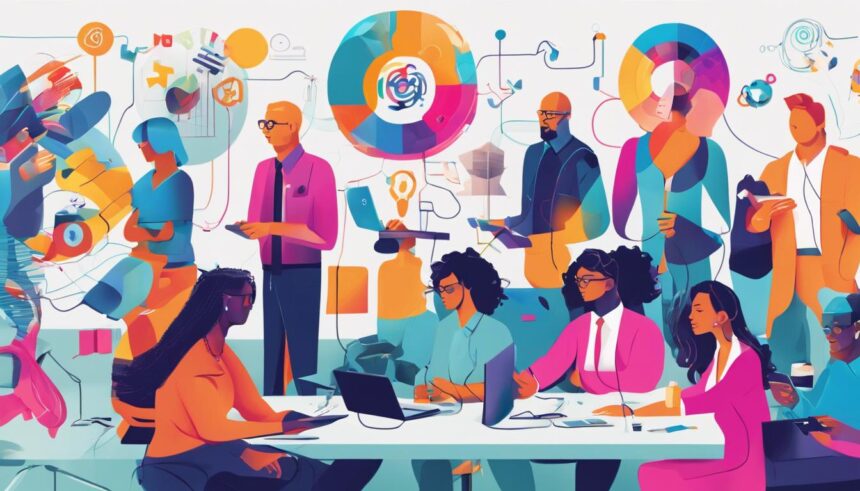As UK businesses invest heavily in enablement technologies to enhance their go-to-market strategies, they encounter significant resistance from employees across all age groups, highlighting the need for tailored training and inclusive adaptation practices.
In the rapidly evolving landscape of workplace technology, UK businesses are confronting a significant hurdle: generational resistance to new technologies. Despite the fact that a substantial 84% of business leaders plan to maintain or increase their investment in enablement technologies in 2024, 61% report experiencing pushback from employees across varying age groups, from Baby Boomers to Generation Z. This challenge underscores a diverse reaction among different generations, with Generation X showing the highest resistance at 74%, and Millennials also showing notable reluctance.
Enablement technology, which supports sales and customer service teams by streamlining processes and improving efficiencies, is essential for companies aiming to enhance their go-to-market (GTM) strategies. This is especially critical as 83% of leaders believe these technologies are key to navigating economic challenges effectively. However, the integration of these technologies into daily workflows presents its own set of challenges, with 42% of users citing full adoption as a struggle due to poor integration with existing systems.
This resistance is multifaceted, involving not just a reluctance to adopt new systems but also varied levels of technological readiness and awareness among employees. Importantly, 42% believe their colleagues are more resistant to change, which might impede the cohesive adoption of these new tools.
Given the diversity in adoption rates and the challenges noted across generational lines, businesses are increasingly finding the need for customized training programs. These programmes are essential in catering to different learning styles and preferences within the workforce. A significant 91% of those surveyed acknowledged the effectiveness of tailored training, highlighting its benefits in speeding up the adoption process, particularly for younger workers like Generation Z, who, despite being digital natives, still face significant challenges in adapting to new workplace technologies.
Moreover, the implications of failing to implement effective enablement tools are substantial. Nearly a quarter of the respondents are considering leaving their current roles due to the lack of adequate technological support, emphasizing the importance of these tools in employee retention and satisfaction.
The insights from Seismic’s report highlight a crucial point: the journey towards digital transformation is not just about technological upgrades but also about cultural shifts within organisations. As Seismic’s Chief Marketing Officer, Paige O’Neill, points out, mature organisations use enablement technologies to bridge generational divides, foster innovation, and build agile teams. Patricia Peral, Senior Director of GTM Enablement at Beeline, similarly underscores the ongoing necessity of educating and supporting all employees consistently through their technological adaptation process.
As companies continue to navigate these challenges, the focus must not only be on implementing new technologies but also on fostering an inclusive culture that supports continuous learning and adaptation for all generations within the workforce. The journey towards a fully enabled workforce is complex but critical for businesses aiming to thrive in a competitive and ever-changing market environment.





